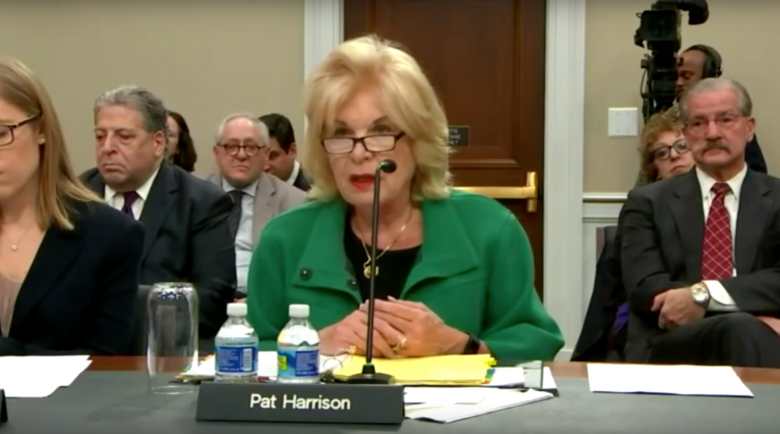CPB Head Defends Threatened Funding Request to Congress
CEO and President of the Corporation for Public Broadcasting (CPB), Patricia de Stacy Harrison, spoke before a House subcommittee on March 28 to make a case for her company’s 2020 budget request. Her appearance marked the first time in ten years that the head of the public-private agency was called before Congress.
CPB receives both private and federal funding. The majority of its federal spending goes toward direct grants and programming grants. The former is for qualifying radio and television stations, including NPR and PBS, and the latter is to produce educational and public interest content for television with programs like “Sesame Street” and “Frontline.”
For the last seven years, CPB has received federal funding of $445 million and is requesting the same for fiscal year 2018. However, the Trump administration’s budget blueprint will defund the corporation.
In the overall cordial two-hour session, Harrison defended CPB’s funding request for FY20, as well as both the request of $30 million for the Ready To Learn early literacy initiative and $55 million for public broadcasting’s interconnection upgrade for FY18.
She stressed that zeroing out CPB would “mean the collapse of public media.” She explained that CPB grants make up around 20 percent of the budgets for stations in big cities, but in rural areas the percentage is as high as half. “The problem with rural stations is they don’t have this in-depth donor base. They just don’t have what some of the other stations, the bigger stations, have, and they really depend upon the federal investment.” She warned of the demise starting with rural areas: “So what would happen if the federal investment, if the appropriation would go away, there would be this domino effect and it would start first with rural stations.”
While by and large, subcommittee members indicated support for the CPB’s work, she faced some criticism. Representative Andy Harris of Maryland accused CPB of pushing an “agenda” with films like The New Black, a documentary that examines the African-American community’s debate over gay marriage. He admitted that he did not watch the film, but knew it was biased from the description, which used the phrase “marriage equality.”
As a former co-chair of the Republican National Committee, she responded, “We are tasked with two things: to provide a firewall of independence for our content providers and also to ensure balance and objectivity. And these are sometimes two clashing objectives. I think, overall, we’ve done pretty well.”
She added, “I’d like to come and sit down with you to talk about how we serve all the people. The reason that I know we deserve the appropriation is because we can prove that we make a difference in the lives of Americans who can’t afford a cable bill or so-called market solutions.”
Before closing, Representative Rosa DeLauro of Connecticut, a longtime public broadcasting champion, asked Harrison what she’d do if CPB’s appropriation were doubled. Harrison explained that she would plan to expand American Graduate, launch a 24/7 history channel for local content, increase funding for the Ready To Learn early literacy initiative, bolster work focusing on veterans and programming from the National Minority Consortia, fund more international reporting for NPR, and create a leadership channel “for kids to learn about courage, commitment, perseverance and grit.”
Trump is expected to release his full budget as early as May. Then it will go to the House and Senate for their changes and approval.
Click here to read Harrison's full testimony. Click here to watch the whole hearing for CPB's budget.





































i-Italy
Facebook
Google+
This work may not be reproduced, in whole or in part, without prior written permission.
Questo lavoro non può essere riprodotto, in tutto o in parte, senza permesso scritto.